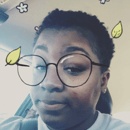This past weekend the six-part docu-series Surviving R. Kelly premiered and (social) media has not stopped talking about it. Everyone is shook. Whether you’re for or against R. Kelly, the information is out there. Finally, the conversation has gotten started. No, not only about R. Kelly and his cult-like “relationships”, but the issue of sex trafficking as a whole.
First thing’s first, what is Sex Trafficking?
Sex trafficking occurs when an individual is forced or coerced into participating in commercial sex (sex for profit). Additionally, anyone under the age of 18 engaging in commercial sex is considered to be a victim of human trafficking, regardless of force or coercion; however, sex trafficking does not have an age limit. Children, teens, and adults can all be victims of sex trafficking.
Who are the people being trafficked?
Sex traffickers often target victims who are economically less fortunate, abandoned, bullied, or seeking relationships. Truthfully, anyone could, but this is the main targeted individuals.
How do people get caught up in this lifestyle?
The predators make it very appealing. They prey on the victims “weaknesses”, for example, they make promises of a better life, luxury items, and happiness, but then use violence, threats, and other forms of manipulation to keep their victims involved in the sex trade for their own profit.
Even though sex trafficking may feel like a distant industry, it’s happening right here in our country and our neighborhoods.
So what does any of this have to do with Atlanta?
Everything. A study done on sex trafficking revealed that metro Atlanta topped the list in part because of the many conventions held in the city. The report, conducted by Washington D.C.’s Urban Institute for the U.S. Justice Department, looked at the sex trade in eight major American cities and found that Atlanta had the largest sex trade between 2003 and 2007. Additionally, “Atlanta went from $232 million to $290 million over that five-year span,” Meredith Dank, the lead author for the report, told WSB Radio.
Even more disheartening are the growing statistics: In 2017, there were 3,189 reported cases of sex trafficking in the United States. A majority of these cases were female and a staggering number of cases included minors (minors: 1,118; adults: 1,934).
Some people may wonder, “Why don’t the victims just leave?” When you’re a victim of sex trafficking, “just leaving” isn’t as simple as you may think and for most, it’s not an option. These sex workers or modern-day slaves are often completely isolated from their families and taken from their homes, so even if they by some miracle did escape, they would not have anywhere to go.
I think one of the main reasons people are able to pull off human trafficking is because people know it’s happening, but are not doing anything or enough to hold the perpetrators responsible for their actions. Even people who may not be committing the act, but are not stopping it are just as guilty. “Well that’s not my business” or “At least I’m not doing it” are unacceptable reactions. Where’s the accountability? Why has not a state of emergency been called? How has not this been stopped? Oh, I know why. Money. This line of work is very profitable. There is an estimated global annual profit of almost $28 billion for forced commercial sexual exploitation, according to the International Labor Organization. We all know money is a driving force in America, but that’s a conversation for another article. Let’s stay focused; one crisis at a time.
What Can I Do?
If you’re like me, outraged and disgusted by this, you might be looking for ways to help. No, I don’t have an ultimate solution, but I think we’ve already taken a huge step toward progress. Awareness. Again, #SurvivingRKelly has made it impossible for people to not know what’s going on. The hashtag alone has generated almost a million hits on social media. People are now led to research sex trafficking or human trafficking and associated topics. But, if you’re looking for a more vocal and quicker way to get involved, join a protest, start a movement, participate in a march, etc.
January 11th is known as #WearBlueDay to show support for the Blue Campaign and raise public awareness of human trafficking. Supporters and advocates around the world are encouraged to take a picture of themselves wearing blue and tag it with #WearBlueDay and #WeWearBlueBecause to increase awareness for human trafficking.
Do whatever you can, legally and in a non-life-threatening way to keep the conversation going. Speaking of marches, shameless plug time, Her Campus at SCAD Atlanta and Bee Empowered are participating in the Women’s March happening later this month (Saturday, January 19, 2019).
Before this turns into a rant, I’ll end this article, but if you are anyone you know is a victim of sex trafficking, please click here for a list of Anti-Human Trafficking Resources. Also, here’s the National Human Trafficking Hotline number 1 (888) 373-7888.



